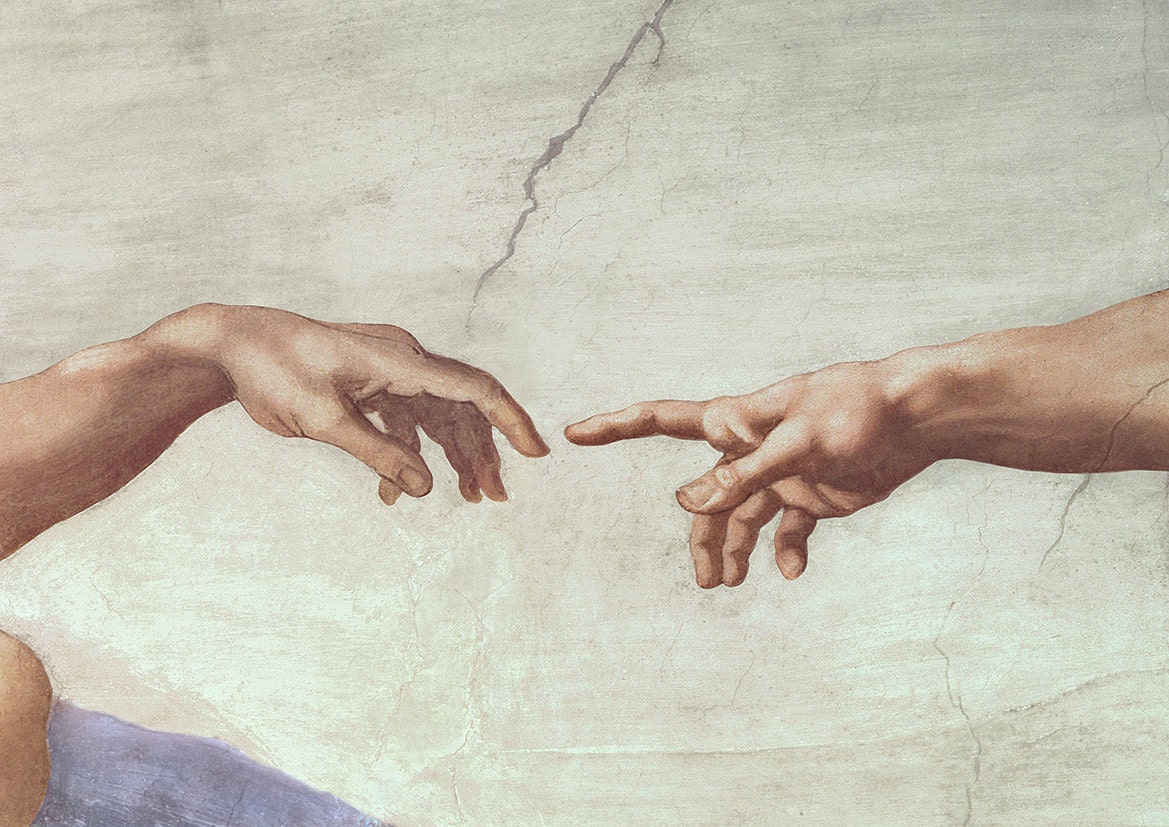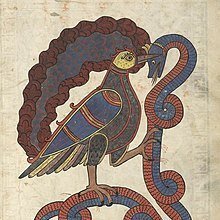-
Content count
1,394 -
Joined
-
Last visited
-
Days Won
7
Posts posted by Sir Darius the Clairvoyent
-
-
Maddie, out of curiousity I checked the data for the US and my own country Norway. We have 0.03%, compared to yours 0.5%. You have a a lot of people ages 13-17 as well (1.5%).
Among U.S. adults, 0.5% (about 1.3 million adults) identify as transgender. Among youth ages 13 to 17 in the U.S., 1.4% (about 300,000 youth) identify as transgender.
How do you interpet this?
-
 1
1
-
-
5 minutes ago, Maddie said:Did you read the article that I posted earlier?
No, was interrested in your take.
-
 1
1
-
-
1 minute ago, Maddie said:In addition to all of the other implications of this election I think one of the hardest things has been processing that people who you thought had your back and your best interest at heart indeed do not.
I wonder what they're going to tell their grandchildren someday when their grandkids ask why the trans people got wiped out they say well you see honey the price of eggs was a little high.
You fear being wiped Out? Also, dont you think most voters care more about the economy and border Patrol?
-
11 minutes ago, Maddie said:I was just chatting online with someone yesterday from Australia and he told me the same thing. This is really good and easily information to know. Thank you very much! 😊
Hi Maddie, hope you are fine. May I ask how Trump and the election have or might affect you and other trans people in general?
-
 1
1
-
-
40 minutes ago, Dedicated said:Nietzsche's ok, I studied him at Uni. But no
He agrees with you, dont follow him

Now I go alone, my disciples, You too, go now alone. Thus I want it. Go away from me and resist Zarathustra! And even better: be ashamed of him! Perhaps he deceived you… One pays a teacher badly if one always remains nothing but a pupil. And why do you not want to pluck at my wreath? You revere me; but what if your reverence tumbles one day? Beware lest a statue slay you. You say that you believe in Zarathustra? But what matters Zarathustra? You are my believers – but what matter all believers? You had not yet sought yourselves; and you found me. Thus do all believers; therefore all faith amounts to so little. Now I bid you to lose me and find yourselves; and only then when you have all denied me will I return to you… that I may celebrate the great noon with you.
Since youve studied him, whats your take on some of his views?
-
Id never thought id say this, but this convo legit makes me wonder If christ truly had it all figured Out.
-
 1
1
-
-
11 hours ago, Dedicated said:It can be problematic. In the Art of Happiness the Dalai Lama suggests sticking to the path you're familiar with because they all lead most of the way and the rest is up to us
I would like to reccomend what might be my fav book of all time: thus spoke zarathustra, Nietzche. It about how humans can and should find their own path after «the death of God» (the foundation on which much of European morality was based upon).
-
Allow me to share the biggest artists of my city:
-
 1
1
-
-
11 minutes ago, Daniel said:ry, ( for example through Noah
Is shem, ham and japheth metaphor for different races, or is that just a modern, racist invention. If not, what does it represe? Also, isnt literally everyone descended from him according to Your faith?
-
I do not want to hijack the thread, so apologies, but why find a spesific path at all? No teaching is complete, wouldnt it be better to pick and mix?
-
Just wanted to drop a quick reminder to everyone here that you’re all amazing! Love seeing this community come together like this. Keep being awesome, everyone! 🔥👊 #StayPositive
Upvote if you agree!
-
 1
1
-
 4
4
-
-
15 minutes ago, Thrice Daily said:So how exactly did the Jews arrive in Isreal ?thats what I wanna frickin know, and where had they actually travelled from !!!!
Let me start by a disclaimer: this is very tinfoil!
BUT a page or two ago, I reccomended a video to Nungali. In that video, they mention how Herodotus had zero knowledge of the jews… they speculate that proto jews might be mentioned, tho:
SpoilerThere are no men who respect pledges more than the Arabians. This is how they give them: a man stands between the two pledging parties, and with a sharp stone cuts the palms of their hands, near the thumb; then he takes a piece of wood from the cloak of each and smears with their blood seven stones that lie between them, meanwhile calling on Dionysus and the Heavenly Aphrodite;
[2] after this is done, the one who has given his pledge commends the stranger (or his countryman if the other be one) to his friends, and his friends hold themselves bound to honor the pledge.
3] They believe in no other gods except Dionysus and the Heavenly Aphrodite; and they say that they wear their hair as Dionysus does his, cutting it round the head and shaving the temples. They call Dionysus, Orotalt; and Aphrodite, Alilat.1Herodotus, 8.3.1-3
Theory goes, somekind of hellenistic seapeople who got relocated after the defeat to Egypt, mixed with the local tribes and… that than became the jews. But again, crackpot theory.
Also, you mention how Mecca was prob not a muslim center at the beginning, I think you right: I belive most modern scholars think it was actually Petra.
-
 1
1
-
-
-
3 minutes ago, Nungali said:Lost in the desert 40 years ! Man ! It took me ONE DAY to get out ; The Pinnacles ... what a place ! I was so vibed and amazed I just kept walking , stared out on dawn . After a while, and a lot of meandering in wonder , I was getting hot, need water , shit ! How do I find my way back ? I started out with the rising sun on my right but now it was nearly noon . I soon realised that with a bit of loose time calculation, watching how long it took the Sun to move and considering the direction of shadows , I was able to go back the way I came ... it worked .
The Pinnacles :
This might border on bigotry, but I legit sometimes ponder how enviorments like these would affect culture and religion. Today it rained 189mm in my city… how could I possibly imagine the dessert. Competition was probally quite a bit fiercer. On the pluss side tho, I feel time somehow «moves more slowly» there, and they are less probe to get caught up by all the silly things we wonder about. Instead, my perception (which is based on literally nothing but prejudige) is that they spent more time focusing on the larger questions, like mans role in the universe.
-
 1
1
-
-
6 minutes ago, Thrice Daily said:That’s not why I asked the question.
I asked for someone that may have an answer. It must have been something that has been considered by historians who assert it as a truth.
i’d like to hear it. Make more sense?
No not at all. If it didnt happen, they did not eat anything. They had no more need for food than Casper the friendly ghost. But maybe you could check Out beduin diet? If it did happen, I guess it would be something like that.
-
 1
1
-
-
2 hours ago, Thrice Daily said:Hopefully this question I’m not too controversial.
In the 40 years the Jews were taking that huge detour to get home, what exactly were they eating along the way.
it just sprung to mind in the moment, do you know? It was pretty Barron land wasn’t it?
There is literally zero evidence of the exodus. And I mean zero. Not even an indication that it did happen… other then the book of exodus ofc.
Circle.
-
 1
1
-
-
On 28.10.2024 at 6:43 AM, Ajay0 said:Virtuous conduct has also been considered to be synonymous with meditation.
This I like.
As for a doctrine being «necesarry» for developing virtue (reffering to your first 4-6 paragraphs), I think I have heard similar refferences in other religions. That is: for the masses practise and «dogma» is neccesary, but when/if you come to realize the more esoteric teachings, they are no longer of use? Sort of being a gateway, in a way?
-
 1
1
-
-
If anyone here enjoys rap:
-
 1
1
-
-
3 hours ago, Daniel said:Maybe I'll check it out to see what mistakes were made, and what information was omitted.
What a scientific and open minded approach, haha..
-
 1
1
-
-
@Nungali I know you are a little sceptical to YouTube, but I think youll actually might enjoy this:
It is about how judaism (or at the very least, OT) is either a persian or hellenistic construct (or both), based on research by the school of copenhagen.
One argument I found really compelling, is the almost, if not complete, lack of historians mentioning Israel prior to the hellenistic era. Think about the areas Herodotus mentioned: phoenicians, assyrians, and egyptians (all their neighboors), and even far away people such as the arabs, India, Ethiopia and hyperborrea. Despite this, he seems to have no idea that jews existed.I am considering checking out some of the books they refference.
no pressure
-
 1
1
-
-
-
1 hour ago, Nungali said:Then the Voice over woman goes on to tell the story . This comes from the real translator Ray Merton - Ray is dead now but I have met him and talked extensively . He was a reincarnation of Ra Heerakte he had a ra herakte cult that had Brisbane Aboriginals as his followers and he had (supposedly ) doll houses ( made from 1970s Scandinavian glass cupboard furnature with dolls and action figures dressed up in Egyptian costumes and the cupboards set as mini dioramas of Egyptian temples and he would 'do mgic' and the dolls would come to life and do miniature rituals in their little temples .
How can you say this so casually haha
-
 1
1
-
-
3 minutes ago, Daniel said:I didn't watch the video. I'm not inclined to watch cartoons unless there is a good reason. Is there a good reason to watch it? I'm not sure what is added to this discussion about "magic" by brining a children's movie unless the intention is to add levity.
Sorry, I thought it was a documentary of exodus.
No, seouriosly Daniel, it was just an assosiation for the laughs.
-
2 minutes ago, Daniel said:So, the "magical" community very strongly desires to put a "Jewish" label on their theories because its supposed to increase the faith in their craft.



The Height of Idiocy
in The Rabbit Hole
Posted
Can I share some feel good news? This is 15 yo. William Heimdal:
here is some of his work:
(Sorry, intented to upload more but was unable to)
IMG_3497.webp
IMG_3497.webp
IMG_3497.webp